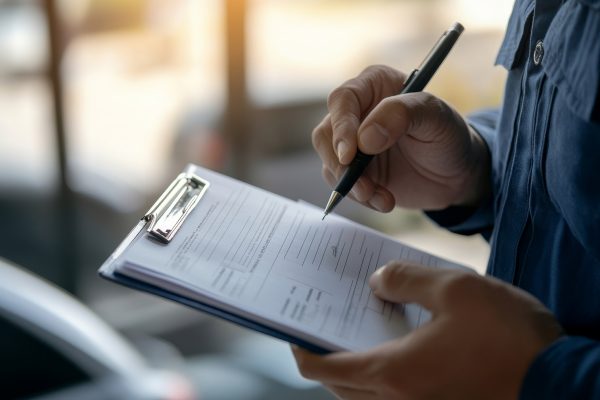As we enter lockdown 2, the Government guidelines have been updated to state that “non-essential retail can remain open for delivery to customers and Click & Collect”.
Lots of our dealers were already successfully providing these services through the previous lockdown and this is the updated advice for anyone deciding to offer these options this time around.
By way of background, there are 3 types of sale under the Consumer Contract Regulations:
- On-premises sale
- Off-premises sale
- Distance sale
These are all defined in law.
An on-premises sale is essentially one where the deal is done purely on your premises. An off-premises sale (sometimes confused with Click & Deliver) is one where you take the payment at the customer’s house on delivery. With this option, not only do you run the risk of finding yourself having to allow the customer to return the vehicle for up to 1 year and 14 days later, you could also be found guilty of an offence if you do not provide all the correct paperwork.
Click & Deliver is a distance sale as the customer has not physically seen the goods before delivery. These sales work in the same way as ordering from Amazon and give the customer 14 days to change their mind. You must give the customer all the correct paperwork in regard to it being a distance sale, otherwise the customer can extend their “change of mind” right for 1 year and 14 days. Clearly, you do not want to be in the position of customers bringing cars back way into 2021.
Click & Collect are a hybrid and could be viewed as an on-premises sale or a distance sale. The law defines a distance sale as:
“’Distance contract’ means a contract concluded between a trader and a consumer under an organised distance sales or service-provision scheme without the simultaneous physical presence of the trader and the consumer, with the exclusive use of one or more means of distance communication up to and including the time at which the contract is concluded.”
Legally, there is a lot to argue over in this definition but the main focus for Click & Collect purposes is around when a contract is “concluded”. Despite the regulation becoming law in June 2014, this point has not yet been tested in court. In legal terms, a contract is formed when the deposit is taken as that binds the consumer to the sale. At this point, the consumer cannot back out of the sale without breaching the contract (thus losing their deposit to cover the dealer’s losses) and so it is fair to say the contract is concluded at that point, i.e. the deal is done. In regard to the distance sale rules, this will mean if you take a deposit over the phone or via the internet, the deal will be done and the contract concluded, meaning even if the consumer comes to collect the vehicle, it will count as a distance sale.
There is an argument to say the deal is not “concluded” until the balance has been paid and the car handed over which means Click & Collect is not a distance sale as the consumer physically sees the goods and pays the balance at the dealer’s premises. However, this argument does not follow the law in regard to contract formation, it goes against consumer advice.

On average 55 vulnerabilities are identified daily.
What can I do?
Review your organisations priorities and ask ‘can we afford a breach?’. What do I do during an incident? Who do I involve? When do I involve the ICO?
If you’re unable to answers these questions, you need help from the experts.
For example in Which? they state: “Your right to cancel an order for goods starts the moment you place your order.” (which means it starts when the deposit is paid) and, more importantly, this is unlikely to be how the courts interpret the legislation when faced with a consumer who wants to exercise their right to change their mind 6 months down the line when the dealer has failed to hand over the correct paperwork. We help our dealers with up to 500 court cases each year, so we have a good handle on how these things work out. Therefore, our advice is, take the sensible option and treat Click & Collect as a distance sale if you take a deposit over the phone or internet.
The only alternative, if you want to safely avoid a distance sale, is to take a holding deposit which you refund when the consumer arrives. You then let them look over the car, perhaps take a short test drive and then take the whole balance. This would be counted as a Click & Collect on-premises sale but will mean the consumer is not bound to purchase the car.
On the subject of test drives, there is no rule against accompanied test drives and so, no reason why these cannot go ahead if a customer insists. You will need to cover accompanied test drives in your Covid Risk Assessment and take all the mitigations such as sanitising every touch point, wearing face coverings and keeping the windows open. You must, of course, also log the salesperson’s and the customer’s details for Track and Trace, as the NHS Track and Trace system defines a contact as: “Someone travelling in a small vehicle with someone (even on a short journey).”.
Buy Lawgistics Test Drive Agreement Pads







